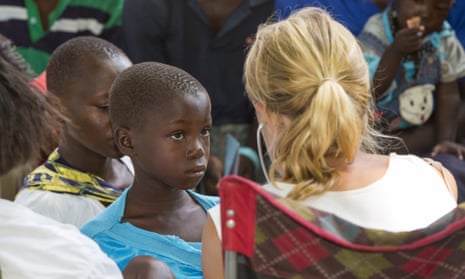As events unfold in the US and across the world, colleagues in the aid sector are closely watching, and sharing their solidarity. After all they are allies and educators of human rights.
Yet as various institutions grapple with their failure to address discrimination, there has been a disappointing lack of self-reflection in our sector. If we understand that racism is embedded in structures, that it is part of engrained power dynamics, we should logically conclude that we are not immune.
The first step to solving a problem is acknowledging we have one. Many remain unconvinced. They proclaim that our entire work is underpinned by principles and values that promote equality and non-discrimination and that while we may not be perfect, we are far better than most.
We do not need to dig too deep to identify contradictions.
The most obvious is the failure to make any progress towards localisation – the effort to increase the role of national responders, as well as to place greater value on local expertise and knowledge, and the use of local language.
This was outlined as a goal of the 2016 Grand Bargain agreement, which brought together donors, international actors and local responders as part of a broader review of humanitarian action. Four years on and international organisations continue to work in spite of local structures, rather than with them. Excuses are numerous: that donors are unwilling to fund national groups directly, that red tape makes it difficult to partner with local actors, or that there is not enough funding for meaningful capacity building.
To understand slow progress, a starting point is to look inward, at the decision makers defining the priorities.
White supremacy is prevalent in the aid sector. The vast majority of heads of organisations and senior posts are held by white people – mostly men.
Leadership positions are rarely held by local hires and are instead disproportionately staffed from countries such as France, Italy, the UK and the US: so-called developed – and overwhelmingly white – nations. There are many international staff from majority non-white countries; generally, they are slightly older, more often motivated by a desire to support their families, often less inclined to join activities centred around high levels of alcohol consumption that are typical of the aid worker social scene.
Social events, just like in other industries, offer the opportunity to build trust and are spaces where informal discussions of employment opportunities occur. This leads to a type of thirtysomething club of white expats constantly giving each other a professional hand-up, at the expense of non-white international staff who remain a few levels below senior – predominantly white – management. A self-perpetuating system remains, as leadership continue to hire friends and contacts in this way.
This is possible because of inadequate recruitment procedures left vulnerable to bias and abuse. We lack defined specifications or minimum industry standards for common positions, skills are largely deemed transferrable and job descriptions are open to a high degree of interpretation. A good word or forwarded CV from a member of “the club” goes a very long way.
The general reliance on international staff for positions which could be performed just as well, if not better, by local hires is difficult to justify.
We’re told the local capacity doesn’t exist, or that we are victims of an overly professionalised sector, requiring perfectly written English language reports to headquarters and donors. This mindset, and more precarious contracts for local staff, devalues their contribution and labour and means their voices are not heard.
This insidious racism by white leadership devalues local hires who are predominantly non-white in the countries we work in, and is exemplified by organisations that deem it acceptable to operate with continuous six-month contract commitments for international staff. They ship around highly mobile young people, who have limited contextual or institutional knowledge. Aside from the obvious inefficiencies, to imply this is preferable to hiring locally is an insult to staff, communities and authorities.
All these factors lead to a situation where those least affected by decisions are the ones making them.
The way that organisations rationalise these actions is deeply perplexing. This is a sector that advocates for proactively addressing barriers that contribute to unequal access to opportunities, that recognises inequalities are rooted in bias and unfair policies, that understands corrective intentional action is necessary. We are failing to apply this approach internally, let alone with national responders. If international organisations believe in localisation, then it is not a matter of whether it is viable but rather making it happen. Instead, the prevalence and persistence of white international staff in senior leadership and the continued devaluing of local expertise and people, brings back echoes of the white civiliser, offering superior skills, convinced this is the natural and inevitable order of things.
We need a radical rethinking to tackle our own problem of institutionalised racism. It is precisely because we are advocates of human rights that we should expect far more from ourselves than others, seeking reform with a great deal of urgency. We have the tools, expertise and guiding principles that many other industries do not, and if we can acknowledge our blind spots, the opportunity for a great deal of positive change is at hand.
The author is an international aid worker who has worked at a senior level for UN agencies and NGOs for a decade
